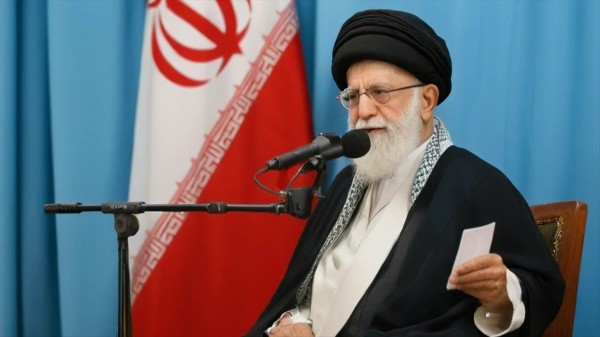Iran’s Plan to Strike Back Against the U.S.
Iran’s Military Preparations Following U.S. Attacks
Loading...

Iran's Plan to Retaliate Against Israel Over Killing of Hamas Leader Ismail Haniyeh
Iran has vowed to retaliate against Israel for the killing of Hamas leader Ismail Haniyeh in Tehran. The Supreme Leader of Iran, Ali Khamenei, has issued orders to "harshly punish" Israel, and the Islamic Revolutionary Guard Corps (IRGC) has confirmed that these orders will be carried out. The situation has prompted responses from various countries and raised concerns about the potential for wider regional conflict.
Iran's Intentions and Response to Haniyeh's Killing
Iran has made it clear that it holds Israel responsible for the assassination of Ismail Haniyeh, who was killed in Tehran in July. The Iranian government, along with Hamas, has accused Israel of the attack, although Israel has not confirmed or denied its involvement. In response to the killing, Iran has declared its intention to retaliate and has emphasized its duty to seek revenge for Haniyeh's death.
International Reactions and Concerns
The escalating tensions between Iran and Israel have drawn responses from the United States and other Western countries. The US has expressed readiness to defend Israel and has deployed additional resources to the Middle East, including an aircraft carrier, in response to the growing concerns about the conflict. However, there have also been calls for de-escalation from the US and other countries, with efforts to urge Israel and Hamas to resume talks for a ceasefire in the Gaza Strip.
Analysis and Speculation
Amidst these developments, analysts have highlighted the potential implications of the situation. There are concerns about the possibility of a wider regional escalation, particularly in the context of the upcoming US elections. The US and other mediating countries are pushing for Gaza ceasefire talks, indicating a desire to pressure Iran and delay potential strikes on Israel. However, there are doubts about the willingness of Israeli Prime Minister Netanyahu to agree to a ceasefire, and questions remain about the impact of potential ceasefire negotiations on Iran's planned retaliation.
Hamas's Response and Leadership Changes
Following Haniyeh's assassination, Hamas has appointed Yahya Sinwar as the new leader of its political bureau. The group has expressed its readiness to carry out Sinwar's decisions, emphasizing its resilience and strength in the face of the ongoing tensions. The potential resumption of ceasefire talks with Sinwar as Hamas's leader has raised questions about the dynamics of the negotiations and the challenges posed by the current situation.
Conclusion
The situation involving Iran's plans to retaliate against Israel for the killing of Hamas leader Ismail Haniyeh has sparked international concern and prompted responses from various stakeholders. The potential for wider regional conflict and the dynamics of ceasefire negotiations in the Gaza Strip are key areas of focus as the situation continues to unfold.
BMM - MBA
Iran’s Military Preparations Following U.S. Attacks
Troops remain in five strategic locations, raising fears of renewed tensions and long-term occupation.
Opposition forces have taken control of the capital after a significant offensive. Here is how it unravelled.
